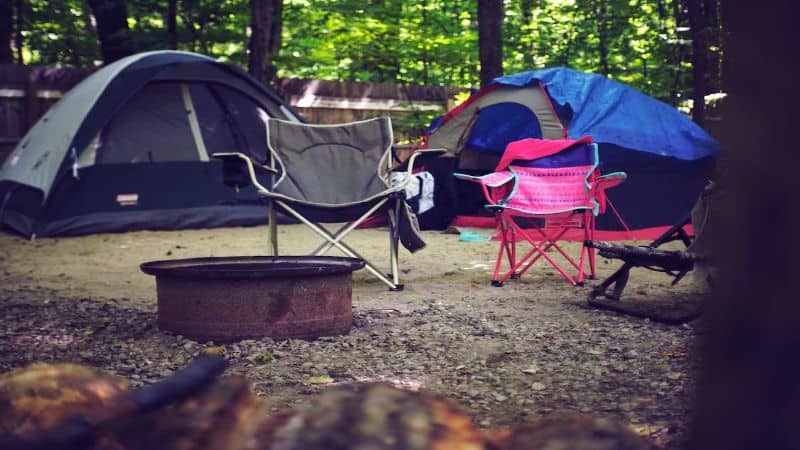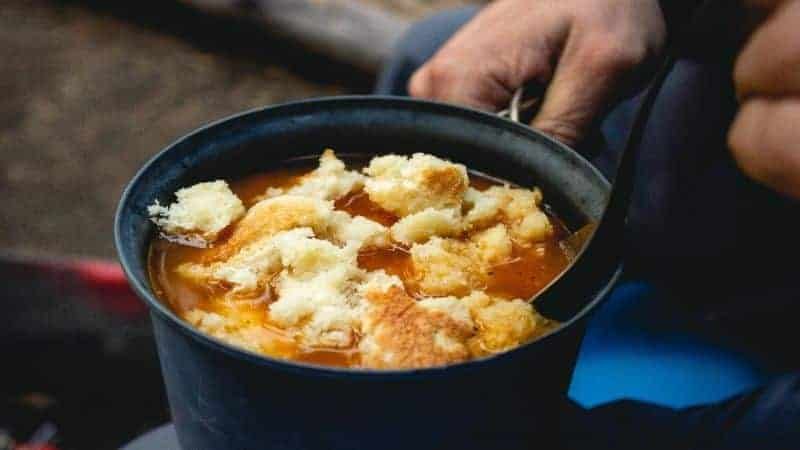Camping is one of my favorite ways to unwind and connect with nature, but nothing can ruin a trip faster than food poisoning. It’s easy to overlook food safety when you’re focused on hiking, fishing, or just enjoying the great outdoors. However, a little planning can go a long way in keeping you and your fellow campers healthy.
Importance of Food Safety While Camping
Food safety is crucial during camping trips. Food poisoning can turn an exciting adventure into a nightmare. I often see campers excited about their meals but overlook proper food handling. Ensuring the safety of what I eat keeps my trips enjoyable and worry-free.
I always plan meals ahead, considering perishability. Perishable items, like meats and dairy, require careful storage in coolers. Using ice packs keeps foods at safe temperatures. I separate raw meats from other foods to avoid cross-contamination.
I pay attention to cooking temperatures. For instance, cooking chicken to an internal temperature of 165°F eliminates harmful bacteria. Carrying a food thermometer helps ensure proper cooking.
Cleaning my hands and cooking surfaces is essential too. I use antibacterial wipes or hand sanitizer when soap and water aren’t available. Clean utensils and surfaces prevent the spread of germs.
Prioritizing food safety while camping prevents illnesses. Planning, safe storage, proper cooking, and cleanliness contribute to a successful and healthy outdoor experience.
Common Causes of Food Poisoning
Food poisoning can ruin a camping trip faster than rain on a sunny day. Knowing common causes helps us stay healthy while enjoying the great outdoors.
Bacteria and Viruses
Bacteria and viruses are the main culprits behind food poisoning. Common bacteria include Salmonella, E. coli, and Listeria. I always make sure to cook meat, especially poultry, to a proper temperature—165°F for chicken, for instance. For every campfire meal, I use a meat thermometer to double-check. Viruses like norovirus can spread through contaminated food or surfaces, so I often clean my cooking gear with antibacterial wipes whenever water isn’t handy.
Improper Food Storage
Improper food storage contributes significantly to foodborne illnesses. I invest in high-quality coolers and ice packs to keep perishables at safe temperatures. When packing, I separate raw meats from ready-to-eat foods to prevent cross-contamination. I also make sure to consume perishables first, like prepped salads or dairy, to minimize waste and enhance safety during the trip. If I’m hiking or fishing, I carry insulated bags to maintain the cold for any catches. Proper storage makes a huge difference in the quality and safety of my camp meals.
Essential Tips for Safe Food Preparation
I enjoy camping and want to ensure that my trips are as safe as they are fun. Following key food preparation tips keeps food poisoning at bay, allowing me to focus on enjoying nature rather than worrying about illness.
Pre-Camping Food Safety Checklist
- Plan Meals Carefully: I choose menu items with lower perishability. Non-perishable foods like canned beans or dried fruits work well.
- Packaging Matters: I pack food in leak-proof containers to prevent cross-contamination. This keeps meat juices from mingling with other ingredients.
- Check Your Gear: I always inspect coolers to ensure they seal well and retain cold air. High-quality coolers and plenty of ice packs are non-negotiable.
- Prepare Ingredients Wisely: I often pre-chop veggies and marinate meats at home, storing them in the refrigerator until I’m ready to leave for the trip.
Safe Cooking Practices
- Use a Meat Thermometer: I carry a meat thermometer to double-check that chicken reaches 165°F and burgers hit 160°F.
- Cook Thoroughly: I cook foods slowly over the fire, ensuring even heat distribution. This process prevents undercooking, especially for meats.
- Clean as You Go: I keep antibacterial wipes handy for cleaning cooking gear when water isn’t available. A little hygiene goes a long way in preventing sickness.
- Reheat Properly: I reheat leftovers until steaming, especially if they had been stored before the trip. This ensures that any harmful bacteria are eliminated.
By following these tips, I can savor my outdoor adventures with less worry about food safety.
Recommended Food Choices for Camping
Eating well while camping is crucial for keeping energy levels up and enjoying the experience. I focus on choosing foods that are both safe and satisfying in the great outdoors.
Non-Perishable Foods
I always pack non-perishable foods for my camping trips. These items stay safe without refrigeration, making them perfect for my adventures. Some go-to choices include:
- Canned goods: I bring beans, vegetables, and soups. They’re easy to heat over the campfire.
- Dried fruits and nuts: I enjoy trail mix as a snack. It’s packed with energy and rich in nutrients.
- Granola and protein bars: These bars provide quick energy. They’re lightweight and simple to carry.
- Rice and pasta: Both cook quickly and pair well with various toppings.
- Dehydrated meals: I often use these for a convenient, tasty meal option. Just add hot water to rehydrate.
These foods provide balanced nutrition and help prevent foodborne illnesses while camping.
Fresh Foods with Safety in Mind
I also like to include fresh foods in my meal planning. When selecting fresh options, I prioritize those that withstand heat and humidity without spoiling quickly. Here’s what I typically choose:
- Hard fruits: Apples and oranges travel well. They last several days and hydrate me.
- Vegetables: Carrots, bell peppers, and cucumbers are great. I store them in a cooler to stay fresh longer.
- Pre-cooked meats: I often bring grilled chicken or sausages. I allow adequate cooling time before packing them in my cooler.
I ensure that I consume these perishables first on the trip to minimize waste. Carrying antibacterial wipes helps maintain cleanliness while preparing these fresh foods.
Conclusion
Camping should be all about fun and adventure but food safety is key to keeping those good times rolling. By taking a few extra steps to plan meals and handle food properly I can enjoy my trip without worrying about getting sick.
Remember to pack smart with quality coolers and keep things clean while cooking. Choosing the right foods and cooking them safely makes a world of difference. With these tips in mind I’m ready to hit the trails and savor every bite without a care in the world. Here’s to many happy and healthy camping trips ahead!











